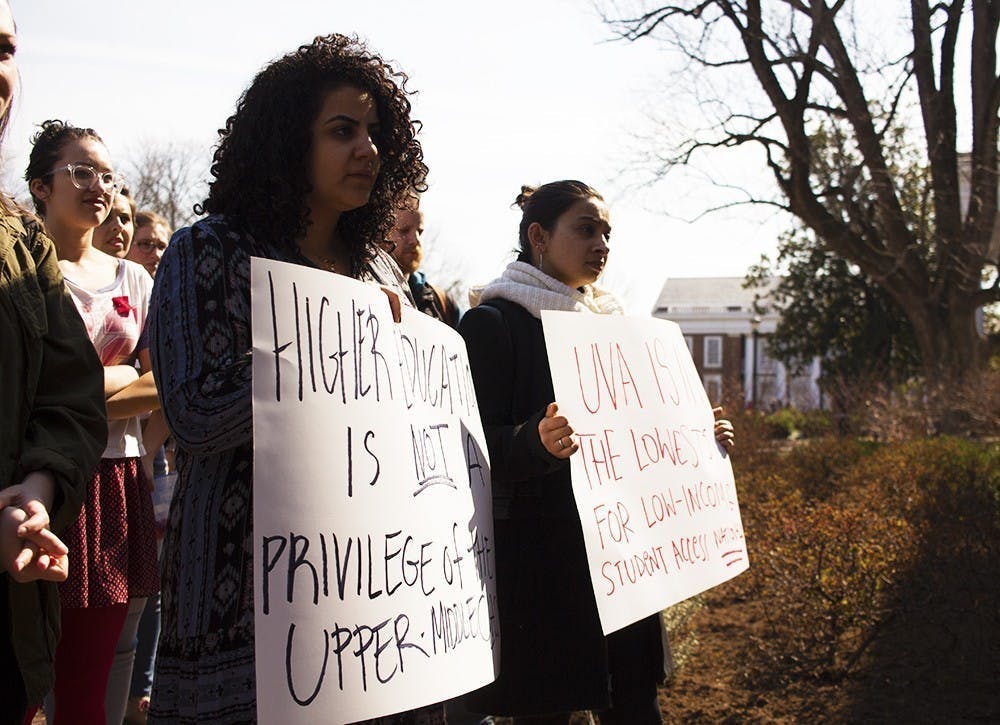When we eventually emerge from our coronavirus quarantines, we will most likely face an economic recession far worse than that of 2008. As unemployment figures could reach 30 percent, it is unlikely that even the current government bailout package will allow the economy to bounce back once we stop social distancing. A recovery will challenge us to address a profoundly changed economy, and to do so we need solutions that will promote long-term growth over short-term bailouts — and the key to that will be free college tuition for all.
A college degree has become both increasingly necessary and unaffordable for many Americans. Yet as inequality increases and high-skilled jobs continue to dominate the labor force, college degrees serve as needed harbingers of upward social mobility. Especially with the coronavirus set to further exacerbate inequality in America, it is crucial that access to education is made as easy as possible — there is no better option than making it free for everyone. After all, the main barriers to attending and graduating college stem from the high costs of attendance.
Creating further accessibility to public colleges through universal free tuition could increase enrollment nationwide, leading to a better educated workforce able to take on skilled positions. This is particularly important, as the post-coronavirus economy is expected to see a high spike in automation, putting up to 36 million less-skilled jobs at risk of being eliminated. If many of the jobs hiring in the new economy require education beyond a high school diploma, increasing the supply of college-educated workers is the best way to fuel that economy — and free tuition can achieve this.
Beyond putting individuals in jobs, free tuition at colleges will also free up capital to be spent that would otherwise be wasted on student loan debt. The average student from a four-year, public college graduates with about $27,000 in debt. Those graduating from public community colleges average a smaller, but not insignificant $11,000 in debt. Thus, money is spent to pay off loans that could otherwise be used to start a business, consume goods or invest. In our post-coronavirus world — or any time following a recession for that matter — these actions will all be needed to stimulate an economy and cause growth. Even outside of economic recovery, graduates unburdened by heavy amounts of debt will be a boon to the drivers of general economic growth just by having more money to spend.
Critics of universal free tuition are quick to note that the money could be better spent making college affordable for those who need it, rather than potentially paying for the children of the rich. However, paying for tuition of children belonging to the top one percent would account for only 1.4 percent of spending if tuition were to be made free. This is because few of the children of millionaires and billionaires actually go to public colleges, and the ones that do attend the highly selective ones — like the University of Virginia — that are not representative of the vast majority of public colleges that most students attend. After all, Felicity Huffman wasn’t arrested for trying to bribe her kids into Virginia Tech.
The reason tuition subsidies must benefit everyone is because means tested benefits — which set criteria for people who can receive them — are neither fair nor efficient. Sure, it sounds appealing to say that we should only give subsidies to those who need them, but it’s a lot harder to judge who actually needs tuition subsidies. Means testing often fails to take into account disparities in cost of living and excludes those slightly above the arbitrary cutoff margins who would still substantially benefit. Take AccessUVA’s promise to cover tuition for students from families making less than $80,000 per year. That $80,000 means something very different to a family in expensive Northern Virginia than to those in rural Montgomery County.
Finally, the notion that we cannot afford to pay for the tuition of the wealthy is misguided by the fact that federal money spent on college affordability already benefits those at the top. The largest subsidy for higher education comes in the form of tax breaks, which disproportionately benefit wealthy Americans. In fact, these tax breaks cost more than we spend on Pell Grants, which actually go to people who need the money. Free tuition for all at public colleges would only cost $76 billion — which is not that expensive in the context of the $160 billion already spent on college financial aid, including the tax breaks and other funding that would be made redundant by a shift to a universal free tuition model.
Free tuition at public colleges is affordable, equitable and will be effective at stimulating economic growth. It is a needed policy that will reduce inequality and give us the skilled workforce the future demands. With the coronavirus aftermath set to dramatically change the way our society functions for years to come, we must pass the reforms we need to meet the challenge of the future.
Matt Heller is a Viewpoint Writer for The Cavalier Daily. He can be reached at opinion@cavalierdaily.com.
The opinions expressed in this column are not necessarily those of The Cavalier Daily. Columns represent the views of the authors alone.







